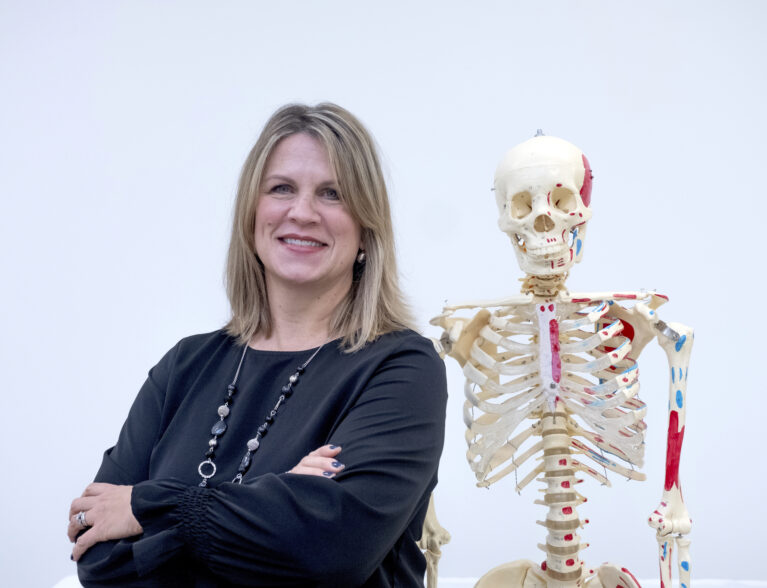
Bone loss is a natural part of getting older, but eating certain foods can help slow the process.
The National Institute on Aging says that healthy eating is a cornerstone of healthy aging.
Professor Stacy Ferrari of Keiser University Dietetics and Nutrition Department at the St. Lucie campus agrees. She says the time to make sure you are getting essential bone health nutrients is NOW.
“We have a small window in which we have maximum bone density – pretty much from ages 25-30. That’s the time you should have begun making sure that your calcium intake is sufficient,” she says.
However, there’s no time like the present to change course and Ferrari explains how to get on the right track for stronger bones.
“The only way to get calcium naturally is from food and diet, and you need some every day. The human body is greedy and efficient, and it will take what calcium it needs. If you’re not providing it nutritionally, it will pull it from your bones and nerves, which will cause them to become weak and brittle,” Ferrari says.
Mayo Clinic explains that our bones are continuously changing – new bone is made and old bone is broken down. When you’re young, your body makes new bone faster than it breaks down old bone, and your bone mass increases. After age 30, this bone “remodeling” continues, but you lose slightly more bone mass than you create anew.
How likely you are to develop osteoporosis, which makes your bones less dense and more fragile, depends on how much bone mass you attain by the time you reach age 30 and how rapidly you lose it after that. The higher your peak bone mass, the more bone you have “in the bank” and the less likely you are to develop osteoporosis as you age.
And, adds Mayo, one of the best ways to ensure bone health is having enough calcium in your diet.
Dairy products are one of the best sources of calcium. “There’s been a lot of negative press and misconceptions about milk and dairy,” says Ferrari.
“Although full-fat products are detrimental to your health, fat-free and low-fat are excellent. They’re wonder foods.”
She suggests that if you think you are lactose intolerant you may want to experiment with portion sizes. “Sometimes the sensitivity can be controlled by amount,” she says.
Women in menopause and perimenopause need to be particularly careful about their bones, explains Ferrari. Estrogen sharply decreases during this period, which means bones can be vulnerable. “Following a calcium-rich diet becomes extremely important at this age.”
“Calcium and vitamin D go hand-in-hand,” says Ferrari. “For the calcium to be absorbed, you need enough vitamin D.”
Adults ages 19-70 need 600 IUs of vitamin D, increasing to 800 IUs a day for those ages 71 and older. Many people meet this requirement by taking a supplement in addition to what they get in their daily diet.
WebMD describes the importance of Vitamin D to an aging body. In addition to building and maintaining healthy bones, it helps with anti-inflammation, immune support, muscle function, generating brain cells, and giving your body antioxidants.
The most common way your body produces vitamin D is by converting sunlight into an active form of the nutrient. People over the age of 65 have been shown to produce less vitamin D, either because they go outside less or because it is harder to convert sunlight into vitamin D as you age.
Ferrari says that for those reasons it is common for people in that age group to take vitamin D supplements.
The University of New Mexico Medical School newsletter says it’s important to eat sufficient protein as we age since research shows that optimal protein intake can improve physical function, prevent sarcopenia and the loss of muscle, help maintain bone mass, and assist with hunger and weight control.
But, explains Ferrari, research about the connection between protein consumption and osteoporosis isn’t in total agreement. “It’s important to eat enough calories as you age,” she says.
“Foods containing protein need to be included because it’s good for maintaining muscle mass.”
Protein-rich foods include Greek yogurt, salmon, beef, chicken, eggs, almonds, milk, beans and lentils.
An article published recently in the New York Times discussed other vitamins and minerals that are beneficial as you age.
Diets that incorporate a variety of fruits and vegetables, like the Mediterranean and DASH diets, can help support bone health. Leafy greens, fruits, nuts and legumes are rich in magnesium and potassium, which both support healthy bones. Prunes and blueberries have also been linked to bone health in older, postmenopausal women.
“Other lifestyle factors like whether or not you smoke, live a sedentary lifestyle and have a family history of osteoporosis are all factors, as well,” says Ferrari. “But your choice of foods and nutrients will play a big role in your bone health as you age.”
Professor Stacy Ferrari has a Master of Public Health in Nutrition degree from the University of North Carolina, Chapel Hill. She is a registered dietitian and nutritionist with the Academy of Nutrition and Dietetics, and a licensed dietitian and nutritionist in the State of Florida. She has been on staff at Keiser University’s Port St. Lucie campus for six years where she teaches Advanced Nutrition, Medical Nutrition Therapy, and Counseling and Communication.



